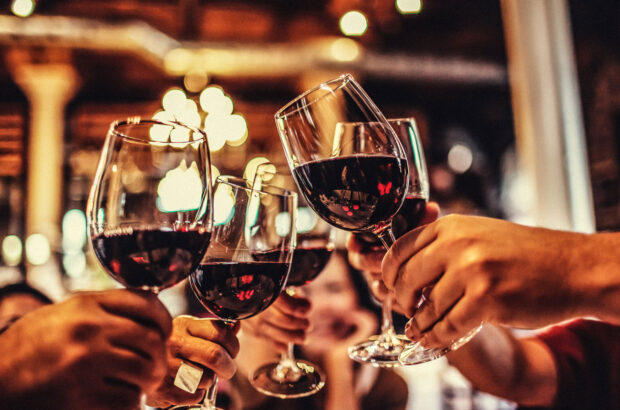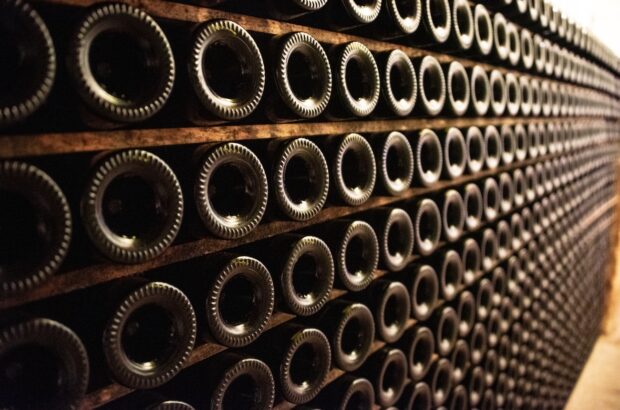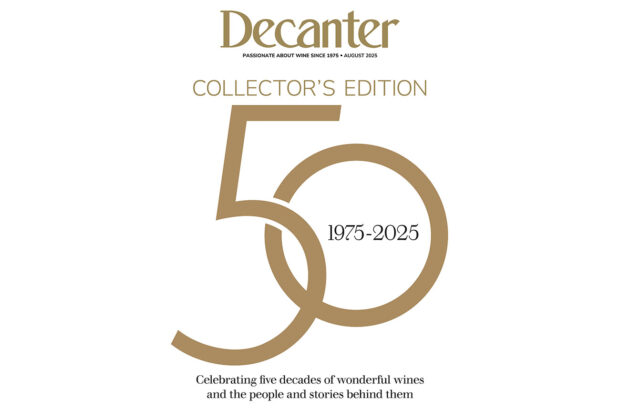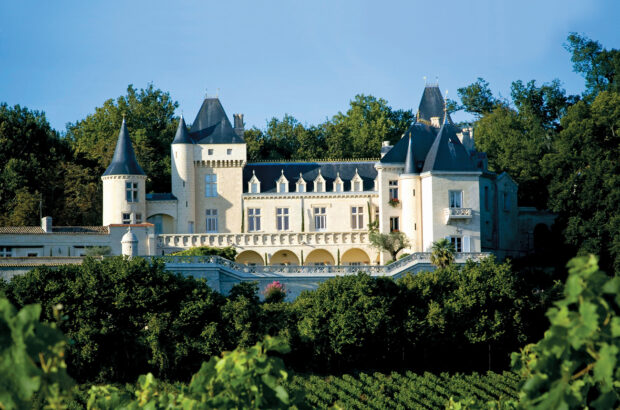Everyone will have their own perspective, but here is a month-by-month snapshot of Decanter’s wine news coverage in 2020.
January
France’s first ‘dry January’ campaign divided the nation, criticised by several leading writers and chefs as an ‘Anglo-Saxon and puritan obsession’.
Australia’s bushfires dominated headlines. Wine Australia said less than 1% of vineyard land lay in fire zones, but Henschke reported 1,100ha of vines in the northern Adelaide Hills damaged in late December, including 90% of its own 25ha Lenswood estate. Most of the vineyard would be back in production by 2022, it added in an April update.
Meanwhile, Bordeaux’s Surtep cooperage launched oak barrels toasted with hot jade stones. Diamonds would also work in theory, said CEO Thomas Moussié.
February
Plans were revealed for a £60m wine cultural centre in Beijing, designed in partnership with Bordeaux’s Cité du Vin.
Despite tension, US officials continued 25% import tariffs on some European wines, from Rioja to Burgundy. Figures showed the tariffs had already curtailed shipments. Italian wines, unaffected by the EU-US trade dispute, only became more popular among fine wine buyers. Separately, there was excitement for the new-release Barolo 2016s.
Elsewhere, burglars stole £170,000 of Domaine Leroy and DRC wines from one-star Michelin restaurant Formel B in Copenhagen.
March
As the Covid-19 crisis deepened, the list of cancelled events grew longer. Restaurants and bars were shuttered across Europe, while Napa Valley Vintners endorsed advice to close tasting rooms.
Wineries in the southern hemisphere made plans to manage harvest and 2020 wines amid restrictions. An early vintage helped some winemakers in Chile and Argentina.
Beyond Covid, French bureaucrats agreed a definition for natural wines, Roederer bought Napa’s Diamond Creek Vineyards, and Germany’s eiswein harvest largely failed after a mild winter.

A virtual wine tasting. Credit: Alex Layton
April
Virtual wine tastings multiplied as Zoom became a household name. UK wine retailers reported an influx of online orders, but the EU still needed to allow ‘crisis distillation’ to drain wineries’ surplus stocks.
Things were especially tough for workers in the hospitality industry, and several top US restaurants sold their collections of rare wines to help pay staff.
Admittedly, silver linings were thin, but Port lovers saw several declarations for 2018. Taylor’s declared a classic vintage for a highly unusual third consecutive year. In Western Australia, Margaret River wineries also reported outstanding quality in the 2020 vintage.
See also: ‘Lockdown stories’ from winemakers around the world
May
Italy’s government approved the production of Prosecco rosé, with 10%-15% Pinot Noir allowed alongside signature grape Glera under DOC rules.
In fine wine, Pauillac first growth Château Latour released its 2012 for the first time.
Auctions had been forced online, but Sotheby’s said Scotch whisky and mature Bordeaux and Burgundy still attracted strong bidding. One Asia-based buyer paid £118,580 for a bottle of 1762 Gautier Cognac.
As limited dining out returned in some countries, Denmark’s two-star Michelin restaurant Noma said it would temporarily reopen as a wine and burger bar.
June
Price cuts of more than 20% on some Bordeaux 2019 en primeur releases prompted excitement among buyers, after Decanter’s Jane Anson praised quality.
Pauillac châteaux Mouton Rothschild and Pontet-Canet 2019 were down by about 30% on their 2018 release price, ex-Bordeaux, in the delayed campaign.
In the US, reopened winery tasting rooms displayed a ‘new normal’, from face masks to extra outdoor seating and personal spittoons.
In other news, Ipswich-based company Frugalpac launched a novel wine bottle made mostly from recycled paperboard.
July
UK restaurants, pubs and wineries reopened to visitors. The government announced its ‘eat out to help out’ discount scheme, though it excluded wine from the offer.
Michel Reybier, owner of Château Cos d’Estournel in St-Estèphe, became the latest high-profile buyer of a Provence winery after acquiring Château La Mascaronne. Premium Provence rosé was in vogue, and pop star Kylie Minogue would announce a new brand in August. See a tasting note here.
Meanwhile, Dutch shoe company Mercer Amsterdam said it had created vegan-friendly trainers made with ‘wine leather’.
August
Champagne suffered an ‘historic drop in shipments’ due to Covid-19, according to the Comité Champagne, which announced a strict limit on this year’s harvest size. Several producers went on to say that 2020 may form a rare ‘trilogy’ of top vintages with 2019 and 2018, however.
Winemakers across Europe noted a particularly early start to harvest, although there were concerns about stocks in some areas. Hail hit parts of lower-lying Valpolicella in north Italy.
In South Africa, wineries and restaurants launched a gift voucher scheme amid a ban on domestic alcohol sales.
Back in Italy, bars in Florence served socially distanced customers via medieval ‘wine windows’ once used during plague outbreaks.

Brad Pitt with his Fleur de Miraval Champagne. Credit: Champagne Fleur de Miraval
September
France’s national appellation body INAO approved 22 premier cru sites in Pouilly-Fuissé, a first for Burgundy’s Mâconnais area: look out for the wines from the 2020 vintage.
In the US, Royal Slope became Washington State’s newest American Viticultural Area.
Elsewhere, Brad Pitt, Angelina Jolie and the Perrin family – co-owners of Château Miraval in Provence – announced a new rosé Champagne, Fleur de Miraval, with grower Pierre Péters. Decanter contributor Yohan Castaing tasted it in November.
September also saw many international releases via the Place de Bordeaux, including 2017s from Masseto in Tuscany and Opus One in Napa Valley.
October
Wildfires on the west coast of the US had already cost lives, damaged property and raised smoke taint concerns when the Glass Fire ignited on 27 September. Active until 20 October, it damaged several Napa Valley wineries and many homes. Burgess Cellars, newly acquired by the Lawrence family and Carlton McCoy Jr MS, lost its winery, but the vineyards largely survived.
Owners of damaged properties, including Meadowood luxury resort, vowed to rebuild. Amid smoke taint concerns, Napa Valley Vintners said the 2020 vintage ‘is not lost’.
Elsewhere, Italian police uncovered a crime ring making counterfeit Sassicaia wines.
November
A rise in Covid-19 cases in several countries brought fresh restrictions, and more heartache for the hospitality sector.
In Bordeaux, Château Cantenac Brown offered a vision of sustainable design with plans for a new winery made from raw earth and reclaimed wood.
Trade disputes were again a hot topic, as China announced provisional import tariffs on Australian wine of between 107% and 212%. That may lead to some Penfolds wines being reallocated to other markets, said brand owner Treasury Wine Estates.
Will Joe Biden’s victory end US tariffs on some European wines? Some merchants were optimistic, but it’s early days and the president-elect’s to-do list is long.
December
An organised crime gang suspected of stealing more than €5m euros-worth of French grand cru wines from several locations was raided by French police. Around 900 bottles were found, including Petrus, Cheval Blanc, Château Margaux and Domaine de la Romanée-Conti bottlings, according to Sud-Ouest newspaper.
Also in France, Mouton Rothschild revealed a design by Chinese artist Xu Bing for its 2018 vintage label.
In Italy, wine lovers have a new DOCG zone, Terre Alfieri, to discover in Piedmont – covering Nebbiolo and Arneis red and white wines respectively.
Meanwhile, scientists in Denmark said ‘umami’ could be why Champagne and oysters taste so good together.
As 2020 drew to a close, concerns around Covid-19 remained high in many countries, despite new hope thanks to the emergence of vaccines. The UK introduced new tier-4 restrictions in some areas, including London, for instance.
On 17 December, trade body UK Hospitality repeated calls for more government support for businesses. ‘They can trade their way out of danger next year only if they are still around to do so,’ said the group’s CEO, Kate Nicholls.
In the US, the National Restaurant Association launched a campaign to promote gift cards as a way for diners to support outlets.
In a column for Decanter, wine writer and columnist Andrew Jefford reflected on the ‘jolts of 2020’.
This article appears in Decanter magazine’s January 2021 issue and has been published online with extra details covering November and December.







